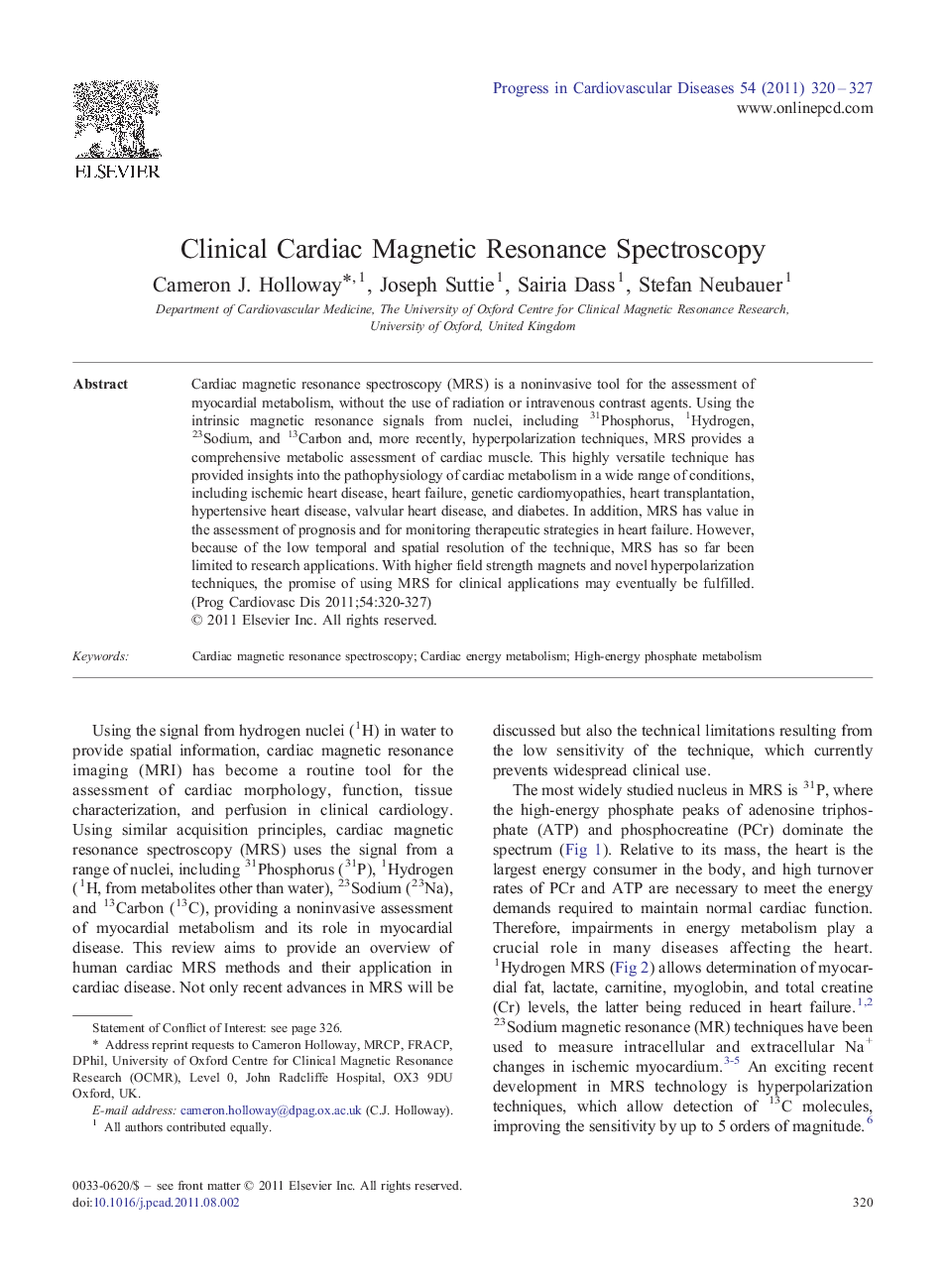| Article ID | Journal | Published Year | Pages | File Type |
|---|---|---|---|---|
| 3006392 | Progress in Cardiovascular Diseases | 2011 | 8 Pages |
Cardiac magnetic resonance spectroscopy (MRS) is a noninvasive tool for the assessment of myocardial metabolism, without the use of radiation or intravenous contrast agents. Using the intrinsic magnetic resonance signals from nuclei, including 31Phosphorus, 1Hydrogen, 23Sodium, and 13Carbon and, more recently, hyperpolarization techniques, MRS provides a comprehensive metabolic assessment of cardiac muscle. This highly versatile technique has provided insights into the pathophysiology of cardiac metabolism in a wide range of conditions, including ischemic heart disease, heart failure, genetic cardiomyopathies, heart transplantation, hypertensive heart disease, valvular heart disease, and diabetes. In addition, MRS has value in the assessment of prognosis and for monitoring therapeutic strategies in heart failure. However, because of the low temporal and spatial resolution of the technique, MRS has so far been limited to research applications. With higher field strength magnets and novel hyperpolarization techniques, the promise of using MRS for clinical applications may eventually be fulfilled.
